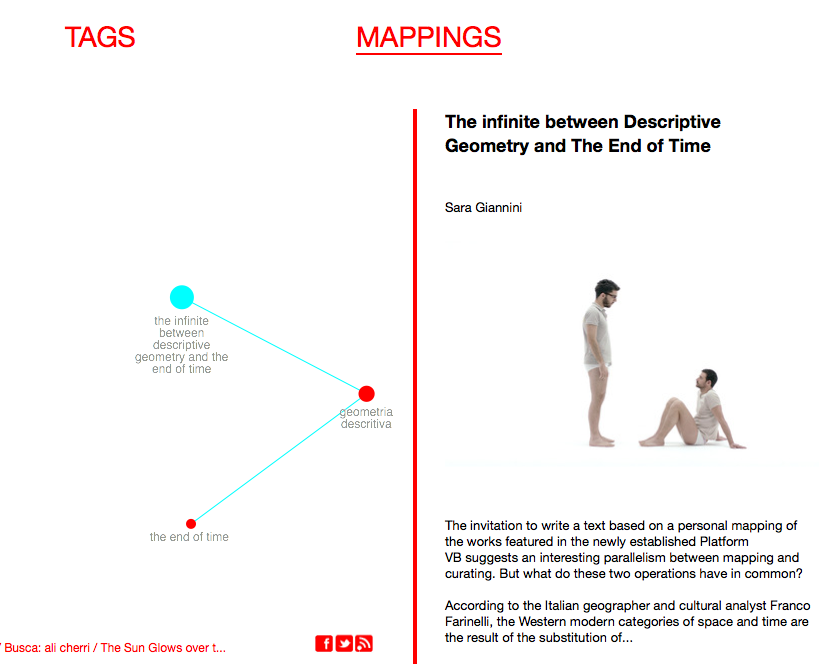VIDEOBRASIL IN THE MENA - Akram Zaatari
In this statement, recorded for the 11th Festival and available from Channel VB, Zaatari discusses Teach Me and the particularities of video making in 1990s Lebanon, marking the beginning of his relationship with Videobrasil.
This retrospective could not begin without mention to Lebanon’s Akram Zaatari. The relationship between Videobrasil and Zaatari began in a peculiar way: up until 1997, the Festival accepted submissions from artists in South America, Australia, Africa and Southeast Asia, in keeping with the notion of geopolitical South that was in effect back then. On recognizing himself as part of said South, Zaatari submitted his Teach Me video to the open call for the 12th edition, and given the quality of his piece, Videobrasil adapted its regulations to include the Middle East.
Now a big star on the international scene, Akram Zaatari explores the construction of image and deals with issues of representation, identity and desire. He featured for the first time in the 11th Festival, in 1996, and has been shortlisted for eight different editions, including the latest one, which ran from November 2013 to February 2014. During the 14th edition (2003), Zaatari was also the curator of the Possible Narratives show alongside Christine Tohme, head of the Lebanese Association for Plastic Arts (Ashkal Alwan), and one of the main contemporary art patrons in Lebanon. They showcased work by 11 other Lebanese artists, retrieving the identity and memory of a country torn apart by decades of religious and political bloodshed. Zaatari’s work is also featured in a title of the Videobrasil Authors Collection, Um Olhar Sobre os Olhares de Akram Zaatari (A Glimpse of One Man's Vision), from 2004, directed by Alex Gabassi.
In Teach Me, the first video he submitted to the Festival, Akram Zaatari alternates between images of war and old movies in a bid to re-signify and discuss issues of representation. The tone, at once intimate and deeply political, is shared by pieces like Crazy of You (1997) and Red Chewing Gum (2000). Zaatari won the grand prize at the 17th Festival, in 2011, for Tomorrow Everything will be Alright.
Akram Zaatari is a co-founder of the Arab Image Foundation. He has featured in the Turin Triennial (2008), in the biennials of Istanbul (2011), Venice (2007) and São Paulo (2006), and in the dOCUMENTA (13), in 2012. His work is a part of the collections of the Tate Modern, Centre Pompidou, Kadist, MoMA and MCA Chicago. He lives and works out of Beirut, Lebanon.
To the Festival’s 18th edition, the curating board selected The End of Time, a piece that approaches masculine desire as an infinite chain of beginnings and ends, pointing to the impossibility of keeping the passion alive before time and reality. Akram himself analyses the creation of this video, initially idealized for Documenta 13, featuring artists Ali Cherri and Roy Dib as actors, both of whom were also selected to the 18th Festival. Read his testimony on PLATFORM:VB.
The End of Time was also the motto of one of first mappings published in the platform, created by curator and researcher Sara Giannini, suggesting a critical reflection upon curatorial practices. In this mapping, Giannini draws a parallel between Akram’s piece and another work selected to competitive show Southern Panoramas, Geometria Descritiva, by Luiz Roque. Click here to access PLATFORM:VB and learn more about the mapping and these two works.

Follow Special Videobrasil in MENA
Throughout this week, the site Videobrasil will highliht other artists of this region, who have participated in the Southern Panoramas competitive show. Don't miss it.